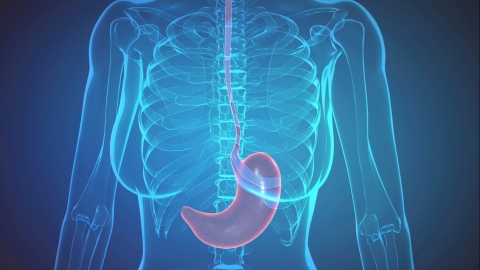What are the common causes of gastric reflux with clear saliva?
In general, common causes of gastric regurgitation of clear fluid include psychological factors, improper eating habits, gastroesophageal reflux, bile reflux gastritis, and gastric ulcers. Symptomatic management through general treatments and medications may be necessary. If discomfort occurs, timely medical consultation is recommended for appropriate treatment under a physician's guidance. Detailed explanations are as follows:

1. Psychological Factors
Psychological factors may also lead to symptoms of gastric regurgitation of clear fluid. For example, when individuals feel particularly disgusted by certain phenomena, contact through vision or smell may trigger symptoms such as nausea and vomiting, including the expulsion of gastric acid. These symptoms typically do not accompany other significant physiological symptoms but may be associated with emotional fluctuations. Such situations usually improve on their own and generally do not require treatment.
2. Improper Eating Habits
Consuming large amounts of spicy, raw, cold, or greasy irritating foods in a short period, or overeating, may cause difficulty in digesting gastric contents and stimulate excessive secretion of gastric acid, leading to symptoms of gastric regurgitation of clear fluid. These symptoms may be accompanied by indigestion symptoms such as abdominal distension and stomach pain. It is recommended to reduce intake of spicy, raw, cold, and greasy foods, maintain regular eating habits, and avoid overeating.
3. Gastroesophageal Reflux
Gastroesophageal reflux disease (GERD) occurs due to dysfunction of the lower esophageal sphincter or reduced esophageal clearance capacity, causing gastric contents to flow back into the esophagus. This irritates the esophageal mucosa, causing a burning sensation and gastric regurgitation of clear fluid. Symptoms may include retrosternal burning sensation, belching, and difficulty swallowing. It is recommended to use medications such as omeprazole enteric-coated capsules, ranitidine tablets, and domperidone tablets under a physician's guidance.
4. Bile Reflux Gastritis
Bile reflux gastritis occurs due to dysfunction of the pyloric sphincter or inflammation in the gastric antrum, which delays gastric emptying, allowing bile and pancreatic juice to flow back into the stomach. This damages the gastric mucosal barrier and irritates the gastric mucosa, causing symptoms of gastric regurgitation of clear fluid. Symptoms may include upper abdominal pain, nausea, and vomiting. It is recommended to follow medical advice to use medications such as sucralfate suspension gel, mosapride citrate dispersible tablets, and cholestyramine powder to relieve symptoms.
5. Gastric Ulcer
Gastric ulcers occur when the gastric mucosa is damaged, forming an ulcer surface that irritates gastric nerves, causing gastric discomfort and symptoms of gastric regurgitation of clear fluid. Gastric acid and pepsin play key roles in the formation of gastric ulcers. Symptoms may include upper abdominal pain, indigestion, and weight loss. It is recommended to use medications such as pantoprazole sodium enteric-coated capsules, colloidal bismuth potassium citrate granules, and amoxicillin capsules under a physician's guidance.
In daily diet, it is recommended to maintain good habits, eat light meals, and avoid consuming spicy and irritating foods to help maintain gastrointestinal health.
References
[1] Jia Chunzeng, Chen Rui, Ma Yujie, et al. Expression characteristics of miR-34a and FOXD3 in gastric mucosal tissues of patients with Helicobacter pylori-positive chronic atrophic gastritis [J/OL]. Journal of Beihua University (Natural Science Edition), 1-5 [2025-03-12].
[2] Xi Xiaohou, Zhang Mingxin, Lin Qiang, et al. Advances in the diagnosis and treatment of gastroesophageal reflux disease [J]. Chinese Journal of Gastroenterology and Hepatology, 2025, 34(02): 297-302.




